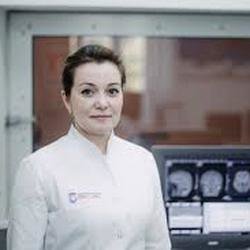180 tests in 6 hours: KFU and Rusfond join forces to fight coronavirus
How the laboratory for primary typing of potential bone marrow donors that has switched to fighting COVID-19 is working in Kazan
During the COVID-19 pandemic, the burden has increased not only on “coronavirus” hospitals but also on other multi-specialty hospitals. To cope with this load, medical institutions had to resort to various, sometimes quite unexpected solutions. Elena Travina, the journalist and employee of Rusfond, tells us specially for Realnoe Vremya how the KFU clinic was fighting the coronavirus enlisting the help of the laboratory for primary typing of potential bone marrow donors of the charity foundation.
For two months in a special mode and tests for COVID-19 for more than 5,000 people — this is how the NGS laboratory in Kazan was working helping doctors in Tatarstan to fight the coronavirus. The laboratory created by Rusfond and the Institute of Fundamental Medicine and Biology of the Kazan Federal University (KFU) is located in the same building as the University Clinic. Despite the fact that the clinic itself has not been included in the number of “Covid-19" hospitals, the burden on the institution during the pandemic increased sharply.
This large multi-specialty hospital with 840 beds serves both Kazan itself and part of the regions of Tatarstan. On its basis, there are surgical and therapeutic departments, vascular centre, maternity hospital, as well as polyclinic. Planned treatment at the clinic was suspended, but there were many emergency patients. People with heart attacks, strokes, and thrombosis, which are also complications of COVID-19, are admitted around the clock. Therefore, specialists must check all patients for the new coronavirus in order to send its carriers to specialised institutions for care — up to 100 new patients a day.
If a patient who was in a medical facility is subsequently diagnosed with coronavirus, all doctors who have been into contact with him are subject to mandatory monitoring. It is also necessary to regularly test the clinic's nurses and orderlies, as well as about 800 employees of the Kazan Federal University itself. At that time, the clinic's own technical capacity was insufficient. Therefore, doctors of the university asked for help from the president of Rusfond, Lev Ambinder.
In connection with the pandemic, Rusfond and the Vasi Perevoshchikov National Registry of Bone Marrow Donors (National RDKM) temporarily suspended mass donor campaigns. The high-tech equipment of the NGS laboratory was not used for its direct purposes. And some of the medical equipment that is used for typing potential bone marrow donors could be used for tests for coronavirus, such as amplifiers. So, according to the decision of the president of Rusfond, Lev Ambinder, since April, the laboratory has been used to diagnose doctors, medical staff and patients of the University Clinic on COVID-19.
Testing was conducted by two teams: a group of doctors from the University Clinic and a group of researchers from the Institute of Fundamental Medicine and Biology of the KFU.

In total, tests have been performed for more than 5,000 people using the facilities of the foundation's laboratory.
Let us note that since the laboratory is not clinical, but research, all positive tests were subsequently rechecked in the Republican Rospotrebnadzor — the results were confirmed in almost 100% of cases.
During this difficult period, the university was able to re-equip and prepare its own hospital laboratory for the needs of research on COVID-19. Therefore, since June 15, the NGS laboratory has returned to its usual work — typing blood samples of potential bone marrow donors.
According to Elena Shagimardanova, the head of the laboratory of Rusfond and Kazan (Volga) Federal University (KFU), during the peak of the epidemic, the laboratory staff continued to perform their duties.
“At first, we had a large stock of research on which the “wet” part of the work has already been done. We remotely processed data sequencing," says Elena Shagimardanov. “The rest of the time we were doing science. The thing is that in the process of working with the genes responsible for tissue compatibility, it was possible to identify alleles (gene variations) that were not previously described by scientists. They had to be registered in the international database. Without such registration, the carriers of these alleles simply will not be able to find a genetic twin if necessary. And they themselves will not be able to become donors for someone else.Э‑
Over the epidemic, the laboratory staff have sent data on 20 new alleles to the international database — some of them have already been registered, some are still being tested.